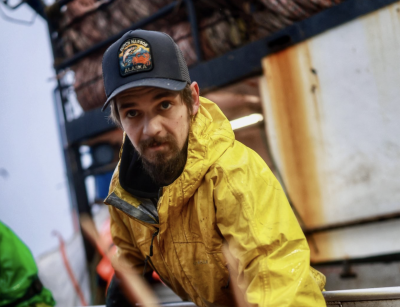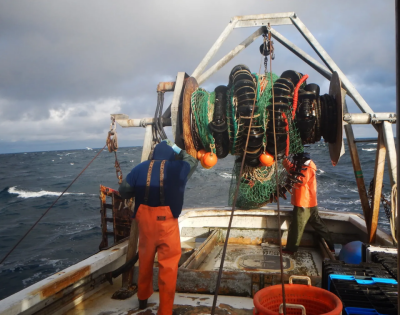Safety must be first
The loss of the Gloucester, Mass., dragger Patriot in early January with two aboard gets at what is wrong with fishing in the age of regulation.
And that is this: When it comes to fishery management, the government is driven by two primal impulses. One is fear that some oompa-loompa with a high school diploma and six mortgages will catch an extra fish. The other, not unrelated to the first, is its fear of environmental lawsuits.
Exactly what happened to the Patriot remains unclear, other than it happened fast: Neither Matteo Russo nor his father-in-law, John Orlando, had time to don a survival suit. The only distress signal was a fire alarm signal relayed to Josie Russo, Matteo's pregnant wife, and the Gloucester Fire Department.
Josie Russo immediately called the Coast Guard, yet two hours and 25 minutes passed before a search- and-rescue effort got under way.
That's a long time in 40-degree water. The Coast Guard knows this and is investigating its own role in the tragedy, among other things. There has been speculation that the Patriot may have been caught between a tug and a barge on a long hawser, something most of us have probably contemplated, try as we might not to.
Year in, year out, we read that commercial fishing is as dangerous a way of making a living as there is in this country. Yet seldom does danger figure into the calculus of regulation: if it did, we would not find two men operating dangerous equipment in a hostile environment for 36 hours — or more — at a stretch.
Many of you probably know the depth of exhaustion that most commercial fishermen would say "comes with the territory." (If you don't, it is described quite vividly by Spike Walker in "Working on the Edge.")
Yet men like Russo and Orlando, undeterred by such rigor, to say nothing of heaving, freezing, windswept decks, are not trying to get rich, nor are they enslaved. They are simply trying to get by in a racket over which they no longer have any control.
If you listen to the regulators, from the very top of the bureaucracy on down, you will hear hymns of praise in the name of safety. And it's not as if they don't mean it. It's just that for the regulator, safety is not job one.
Yet if you are a fisherman, it is job one. In fact, it is the only job. And by all accounts, it is a job Matteo Russo embraced.
I can't tell you that if the government shared Matteo Russo's passion for safety, the outcome would have been different on the morning of Jan. 3. But I can tell you that it would not have taken numerous pleas from Josie Russo and two and a half hours to get a rescue mission launched.
Even after the fire department determined that the Patriot was not at the dock, the Coast Guard sent someone to make sure, the Gloucester Daily Times reported (in the course of excellent coverage by Richard Gaines).
This set the stage for a confounding effort to locate the Patriot by means of its vessel monitoring system data. Apparently the Coast Guard in Boston did not have the right password and had to place a call to Colorado to access VMS reports on a vessel that was probably 30 miles outside the window.
Was there malfeasance on the Coast Guard's part? I don't think so. What happened on Jan. 3 is what happens when regulation and adherence to procedure are the order of the day; it is what happens when VMS is thought of as an electronic bracelet around the mast of any fishing vessel whose crew might be contemplating a high crime, such as steaming through a closed area; it is what happens when you have a system that attaches a higher value to wolffish and window pane flounders than it does to human life.
Industry critics will tell you that regulatory shortcomings are not the fault of regulators: the industry has only itself and its long history of overfishing to blame.
By way of response, I would suggest that we have reached the point of diminishing returns with respect to regulation. Gear restrictions have been effective, spawning closures and other measures are valuable, but now the federal government has become entirely preoccupied with the enforcement of its rules.
Thanks, but no thanks. It's well known that Maine lobstermen are as good at maintaining an orderly and sustainable fishery as they are at catching lobsters. There are three legs to the stool, and they get it.
And if someone forgets it, a lobsterman knows how to deal with a bandit, though he'll still throw the guy a life ring if he's drowning.
New England's groundfishermen — indeed, fishermen all across the country — get it as well. They see the three legs of the stool. Enforcement is a component of fishery management, but it should not be its mainstay.
I'm all for dealing with outlaws, but let's put a priority on safety. We need to make sure we're doing all we can to get everyone home.






